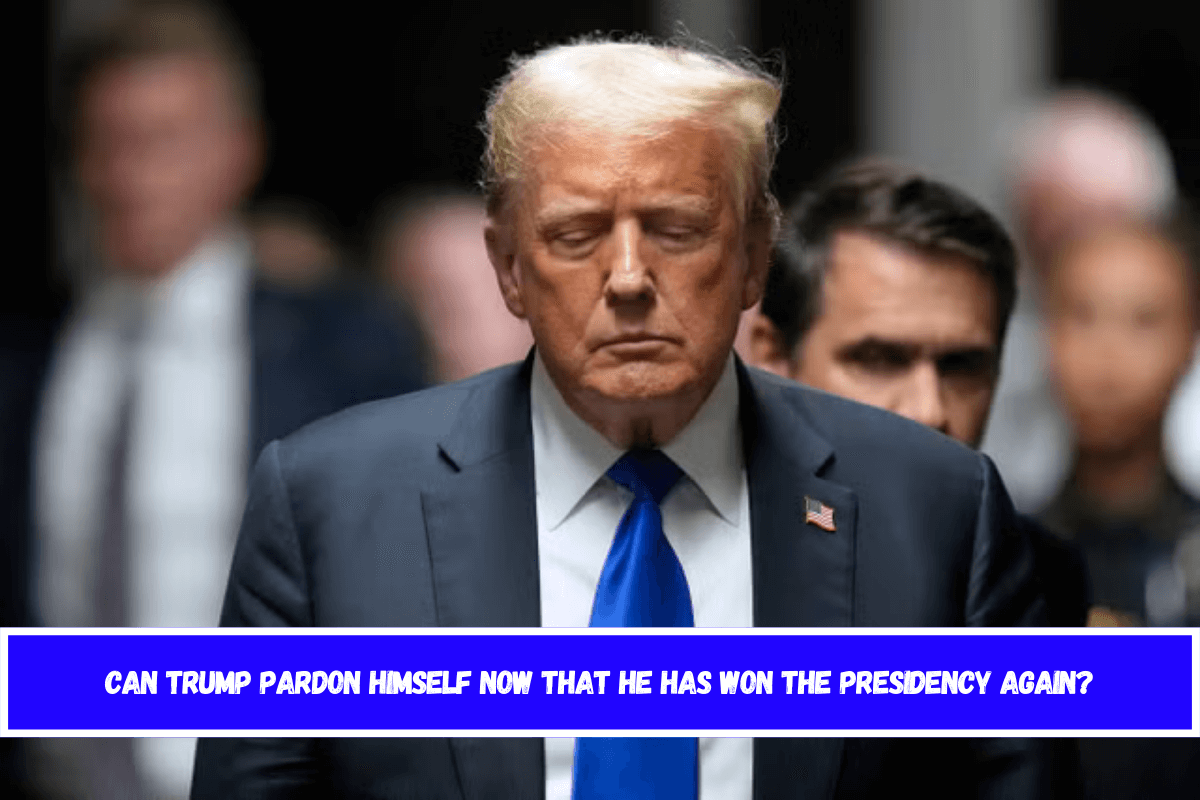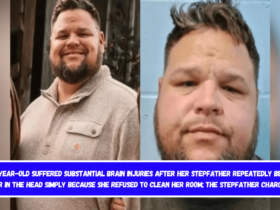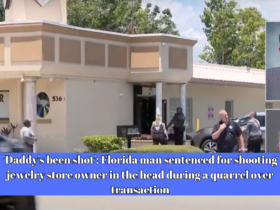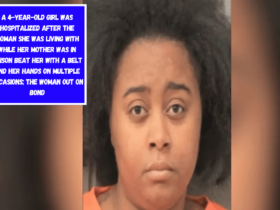In May 2024, Donald Trump made history as the first US president to be convicted of a crime.
A jury convicted the former president on all 34 counts of falsifying corporate documents in connection with a hush money payment to a porn star.
Stormy Daniels claimed that she had an affair with Trump in 2006, something the former president has flatly rejected. Nonetheless, shortly before the 2016 presidential election, Daniels received a $130,000 payment from Trump’s former fixer-turned-foe, Michael Cohen.
Cohen was later compensated for the cash, which was falsely recorded as legal expenditures. A jury of 12 New Yorkers determined that Trump forged those business papers as part of a scheme to influence the election by concealing bad information about himself from voters.
“This was a rigged, disgraceful trial,” Trump said outside the courthouse at the time.
“The real verdict is going to be November 5 by the people, and they know what happened here,” he added, referring to the 2024 presidential election.
“I’m a very innocent man,” he explained.
Trump was correct, and on November 5, the American people determined that his conviction was insufficient to remove him from office, instead giving him a second term in the White House.
Juan Merchan, the judge in charge of the Manhattan case, has postponed sentencing indefinitely but has yet to decide whether to dismiss the case or simply freeze it for the next four years. Trump was scheduled to be sentenced on November 26.
Can Trump pardon himself?
From a legal sense, if elected president, Trump may pardon himself for any federal crimes.
However, he was unable to pardon himself for state-level crimes, such as his New York conviction.
“The state and federal systems in the United States are completely separate,” Steve Duffy, a jury consultant at Trial Behaviour Consulting, told The Independent just before the verdict in the spring of 2024.
“The only person who could pardon him would be the governor of New York, who is extremely unlikely to do so,” he said, referring to Democratic Governor Kathy Hochul.
Attorney Duncan Levin, who served in the Manhattan District Attorney’s Office years before the Trump case, said, “This is a New York state prosecution and is not amenable to a federal pardon. The president of the United States can pardon in federal cases but not in state matters; he would be unable to pardon himself under the law.
However, Levin told The Independent that Trump might have pardoned himself if he had been convicted in his federal charges. Following Trump’s presidential victory, Special Counsel Jack Smith dismissed the two federal prosecutions against him.
The president-elect was charged in Washington, D.C., for attempting to overturn the 2020 election, and in Florida for allegedly mishandling secret papers after leaving the White House in January 2021.
“The [Justice] Department’s position is that the Constitution requires that this case be dismissed before the defendant is inaugurated,” Smith wrote in a six-page brief in November, following the election. “This outcome is not based on the merits or strength of the case against the defendant.”
Judge Tanya Chutkan then dismissed the lawsuit.
Smith stated that he was attempting to drop the charges against Trump “without prejudice,” implying that charges may be brought again at a later date, and that Trump’s forthcoming presidential immunity was just “temporary.”
“Dismissal without prejudice is also consistent with the Government’s understanding that the immunity afforded to a sitting President is temporary, expiring when they leave office,” Chutkan stated when she issued the verdict.
In his federal cases in Florida and Washington, D.C., Trump could have fired Smith and ended the investigations once he became president. Smith decided to leave before that happened.
Trump is now facing state charges in Georgia for his efforts to overturn the state’s 2020 election results.
His RICO lawsuit in the state may potentially be jeopardised once he assumes government. That case is on pause while an appeals court considers whether Fulton County District Attorney Fani Willis can continue to prosecute. Willis apparently had a relationship with the individual she recruited to handle the Trump case. A decision on that lawsuit is not expected until next year, possibly after Trump takes office.
While Trump will not be able to pardon himself in state cases, prosecutors in those cases must decide how to handle the president-elect’s return to the White House.
Smith stated in an appeals court filing that prosecutors were pursuing the misuse of sensitive documents case against two of Trump’s workers. The US 11th Circuit Court of Appeals is reviewing Judge Aileen Cannon’s ruling to dismiss all charges in the case.
Walt Nauta and Carlos de Oliveira, co-defendants, are accused of assisting the president-elect in obstructing a federal inquiry into the removal of government papers from the first Trump White House. They’ve both pleaded not guilty.
What happens now?
The truth is that no one knows how things will turn out because this has never happened in US history.
“It’s never happened before the former president has ever faced a criminal trial,” Mr. Levin noted. “No convict has ever been elected president of the United States. None of this has ever occurred before. “It has no precedent.”
If Trump tries to pardon himself, Levin predicts a legal struggle that will reach the United States Supreme Court.
Of course, Trump has considered pardoning himself in the past.
In September 2023, he stated that he had considered pardoning himself at the end of his final term, but eventually decided against it.
“I could have forgiven myself. Do you know what? I was offered the chance to pardon myself. “I could have excused myself when I left,” he told NBC News.
People asked, ‘Would you like to pardon yourself?'” I had a number of solicitors say, ‘You could do it if you want.’ Some people told me, ‘that would look bad if you do that because I think it would look dreadful.'”
“I said, ‘The last thing I’d ever do is give myself a pardon,'” he told me.
When asked if he would pardon himself if he won the 2024 election, he responded, “I believe it’s highly improbable. What did I do wrong? I did not do anything wrong. Do you mean they want to imprison me because I challenged an election?











Leave a Reply